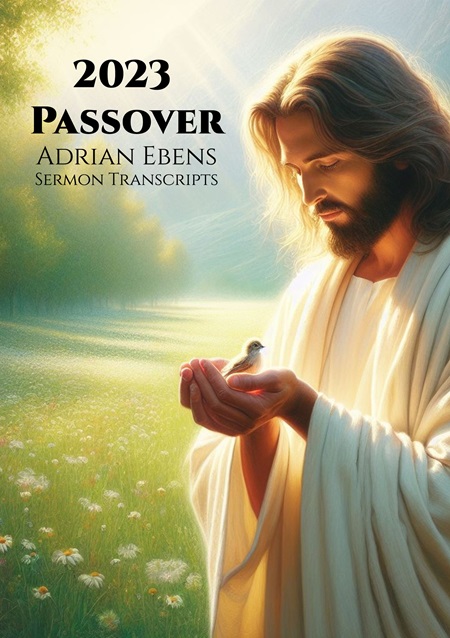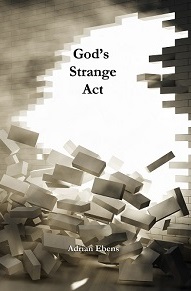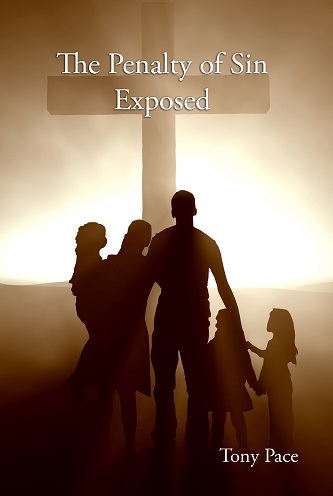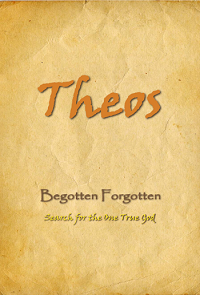Apostasy at the Jordan
In 1957 the Adventist Church released the book questions on Doctrine. On the very first page in response to question one, this statement is made:
“In Common with Conservative Christians and the Historic Protestant Creeds, We Believe.
1. That God is the Sovereign Creator, upholder and ruler of the universe, and that He is eternal, omnipotent, omniscient, and omnipresent.
2. That the Godhead, the Trinity, comprises God the Father, Christ the Son, and the Holy Spirit.”
Questions on Doctrine Page 21,22
What do the Historic Protestant Creeds teach that from this point forward we hold in common? What does it mean to hold in common? Let us look carefully at these points.
1. In Common
Definition from www.Dictionary.com
- belonging equally to, or shared alike by, two or more or all in question: common property; common interests.
- pertaining or belonging equally to an entire community, nation, or culture; public: a common language or history; a common water-supply system.
- joint; united: a common defense.
- widespread; general; ordinary: common knowledge.
2. Historic Protestant Creeds
A. Anglican and Methodist Articles of Faith
I. Of Faith in the Holy Trinity.
There is but one living and true God, everlasting, without body, parts, or passions; of infinite power, wisdom, and goodness; the Maker, and Preserver of all things both visible and invisible. And in unity of this Godhead there be three Persons, of one substance, power, and eternity; the Father, the Son, and the Holy Ghost.
B. Lutheran – Augsburg Confession
Article I: Of God.
1] Our Churches, with common consent, do teach that the decree of the Council of Nicaea concerning the Unity of the Divine Essence and concerning the Three Persons, is true and to be believed without any doubting; 2] that is to say, there is one Divine Essence which is called and which is God: eternal, without body, without parts, of infinite power, wisdom, and goodness, the Maker and Preserver of all things, visible and invisible; and 3] yet there are three Persons, of the same essence and power, who also are coeternal, the Father the Son, and the Holy Ghost. And the term “person” 4] they use as the Fathers have used it, to signify, not a part or quality in another, but that which subsists of itself. 5] They condemn all heresies which have sprung up against this article, as the Manichaeans, who assumed two principles, one Good and the other Evil: also the Valentinians, Arians, Eunomians, Mohammedans, and all such. 6] They condemn also the Samosatenes, old and new, who, contending that there is but one Person, sophistically and impiously argue that the Word and the Holy Ghost are not distinct Persons, but that “Word” signifies a spoken word, and “Spirit” signifies motion created in things.
C. Westminster Confession of Faith
CHAPTER II
Of God, and of the Holy Trinity
There is but one only, living, and true God: who is infinite in being and perfection, a most pure spirit, invisible, without body, parts, or passions, immutable, immense, eternal, incomprehensible, almighty, most wise, most holy, most free, most absolute, working all things according to the counsel of His own immutable and most righteous will, for His own glory; most loving, gracious, merciful, long-suffering, abundant in goodness and truth, forgiving iniquity, transgression, and sin; the rewarder of them that diligently seek Him; and withal, most just and terrible in His judgments, hating all sin, and who will by no means clear the guilty. Deut. vi. 4; 1 Cor. viii. 4, 6; 1 Thess. 1. 9; Jer. x. 10; Job xi. 7, 8, 9; Job xxvi. 14; John iv. 24; 1 Tim. i. 17; Deut. iv. 15, 16; John iv. 24, with Luke xxiv, 39; Acts xiv. 11, 15; James i. 17; Mal. iii. 6; 1 Kings viii. 27; Jer. xxiii. 23, 24; Ps. xc. 2; 1 Tim. i. 17; Ps. cxlv. 3; Gen. xvii. 1; Rev. iv. 8; Rom. xvi, 27; Isa. vi. 3; Rev. iv. 8; Ps. cxv. 3; Exod. iii. 14; Eph. i. 11; Prov. xvi. 4; Rom. xi. 36; 1 John iv. 8, 16; Exod. xxxiv. 6, 7; Heb. xi. 6; Neh. ix. 32, 33; Ps. v. 5, 6; Nah. i. 2, 3; Exod. xxxiv. 7.
II. God hath all life, glory, goodness, blessedness, in and of Himself; and is alone in and unto Himself all-sufficient, not standing in need of any creatures which He hath made, nor deriving any glory from them, but only manifesting His own glory in, by, unto, and upon them: He is the alone fountain of all being, of whom, through whom, and to whom are all things; and hath most sovereign dominion over them, to do by them, for them, or upon them whatsoever Himself pleaseth. In His sight all things are open and manifest; His knowledge is infinite, infallible, and independent upon the creature, so as nothing is to Him contingent, or uncertain. He is most holy in all His counsels, in all His works, and in all His commands. To Him is due from angels and men, and every other creature, whatsoever worship, service or obedience He is pleased to require of them. John v. 26; Acts vii. 2; Ps. cxix. 68; 1 Tim. vi. 15; Rom. ix. 5; Acts xvii. 24, 25; Job xxii. 2, 3; Rom. xi. 36; Rev. iv. 11; 1 Tim. vi. 15; Dan. iv. 25, 35; Heb. iv. 13; Rom. xi. 33, 34; Ps. cxlvii. 5; Acts xv. 18; Ezek. xi. 5; Ps. cxlv. 17; Rom. vii. 12; Rev. v. 12, 13, 14.
III. In the unity of the Godhead there be three persons, of one substance, power, and eternity; God the Father, God the Son, and God the Holy Ghost. The Father is of none, neither begotten, nor proceeding: the Son is eternally begotten of the Father: the Holy Ghost eternally proceeding from the Father and the Son. 1 John v. 7; Matt. iii. 16, 17; Matt. xxviii. 19; 2 Cor. xiii. 14; John i. 14, 18; John xv. 26; Gal. iv. 6.
D. Anabaptist Confession of Faith
I.
That God as He is in Himself, cannot be comprehended of any but himself, 1 dwelling in that inaccessible light, that no eye can attain unto, whom never man saw, nor can see; that there is but 2 one God, one Christ, one Spirit, one Faith, one Baptism; 3 one rule of holiness and obedience for all Saints, at all times, in all places to be observed.
1) 1 Tim. 6:16
2) 1 Tim. 2:5; Eph. 4:4-6; 1 Cor. 12:4-6,13; John 14
3) 1 Tim. 6:3, 13, 14; Gal. 1:8, 9; 2 Tim. 3:15
II.
That God is 1 of Himself, that is, neither from another, nor of another, nor by another, nor for another: 2 But is a Spirit, who as his being is of Himself, so He gives 3 being, moving, and preservation to all other things, being in Himself eternal, most holy, every way infinite in 4 greatness, wisdom, power, justice, goodness, truth, etc. In this Godhead, there is the Father, the Son, and the Spirit; being every one of them one and the same God; and therefore not divided, but distinguished one from another by their several properties; 5 the Father being from Himself, 6 the Son of the Father from everlasting, 7 the Holy Spirit proceeding from the Father and the Son.
1) Isa. 43:11; 46:9
2) John 4:24
3) Exod. 3:14
4) Rom. 11:36; Acts 17:28
5) 1 Cor. 8:6
6) Prov. 8:22-23
7) John 15:16; Gal. 4:6
The Implications
A little bit of thought would show that holding a doctrine of God in common with the Historical Protestant Creeds, makes the Adventist understanding of Daniel 7 and 8 impossible. A God without body or parts expressed through an indivisible substance and without passions is not a God that arises from His throne and moves from the Holy to the Most Holy Place in Heaven.
I saw a throne, and on it sat the Father and the Son. I gazed on Jesus' countenance and admired His lovely person. The Father's person I could not behold, for a cloud of glorious light covered Him. I asked Jesus if His Father had a form like Himself. He said He had, but I could not behold it, for said He, "If you should once behold the glory of His person, you would cease to exist." EW Page 54
The Most Holy, containing the Ark of the ten commandments, was then opened for our Great High Priest to enter to make atonement for the cleansing of the Sanctuary. If we take the liberty to say there is not a literal Ark, containing the ten commandments in heaven, we may go only a step further and deny the literal City, and the literal Son of God. Certainly, Adventists should not choose the spiritual view, rather than the one we have presented. We see no middle ground to be taken. - J. S. White, The Parable, p. 16
“Here is positive testimony that there is a tabernacle which the Lord pitched and not man, and that this tabernacle is in the heavens, (not heaven itself,) and that of this sanctuary, Christ is the minister. That there are literal things in heaven the Scriptures abundantly testify. As the great offering for the world, made on Calvary was literal, and as our great High Priest, Jesus, the son of God, is a real and literal personage, so must he have a literal sanctuary in heaven, in which to perform his priestly office.” - RH, 18-8-1863
Says the prophet Daniel, "I beheld till the thrones were cast down, and the Ancient of days did sit, whose garment was white as snow, and the hairs of his head like the pure wool; his throne was like the fiery flame, and his wheels as burning fire." Chap.vii,9. "I saw in the night visions, and, behold, one like the Son of man came with the clouds of heaven, and came to the Ancient of days, and they brought him near before him, and there was given him dominion and glory and a kingdom." Verses 13, 14.
Here is a sublime description of the action of two personages; viz, God the Father, and his Son Jesus Christ. Deny their personality, and there is not a distinct idea in these quotations from Daniel. In connection with this quotation read the apostle's declaration that the Son was in the express image of his Father's person. "God, who at sundry times, and in divers manners, spake in time past unto the fathers by the prophets, hath in these last days spoken unto us by his Son, whom he hath appointed heir of all things, by whom also he made the worlds; who being the brightness of his glory, and the express image of his person." Heb.i,1-3. The Personality of God Page 3 and 4
The historic Protestant Creeds deny the personality of the Father and Son as in the Bible and especially as represented in Daniel 7 and 8.
“Those who seek to remove the old landmarks are not holding fast; they are not remembering how they have received and heard. Those who try to bring in theories that would remove the pillars of our faith concerning the sanctuary or concerning the personality of God or of Christ, are working as blind men. They are seeking to bring in uncertainties and to set the people of God adrift without an anchor.” MR760 9.5
The release of the book Questions on Doctrine is a direct fulfillment of Ellen White’s words:
The enemy of souls has sought to bring in the supposition that a great reformation was to take place among Seventh-day Adventists, and that this reformation would consist in giving up the doctrines which stand as the pillars of our faith, and engaging in a process of reorganization. Were this reformation to take place, what would result? The principles of truth that God in His wisdom has given to the remnant church, would be discarded. Our religion would be changed. The fundamental principles that have sustained the work for the last fifty years would be accounted as error. A new organization would be established. Books of a new order would be written. A system of intellectual philosophy would be introduced. The founders of this system would go into the cities, and do a wonderful work. The Sabbath of course, would be lightly regarded, as also the God who created it. Nothing would be allowed to stand in the way of the new movement. The leaders would teach that virtue is better than vice, but God being removed, they would place their dependence on human power, which, without God, is worthless. Their foundation would be built on the sand, and storm and tempest would sweep away the structure. 1 SM 204, 205
When Adventism trimmed their lamps and followed their Lord from the Holy to the Most Holy Place through the door which no man could shut and then the door was shut which no man could open, Adventists received of the Spirit of Christ. Those churches who refused to embrace the Third Angel’s Message which included the Sabbath, and the light on the Sanctuary in 1844 did not go through this door and left themselves open to another spirit.
I saw the Father rise from the throne, and in a flaming chariot go into the holy of holies within the veil, and sit down. Then Jesus rose up from the throne, and the most of those who were bowed down arose with Him. I did not see one ray of light pass from Jesus to the careless multitude after He arose, and they were left in perfect darkness. Those who arose when Jesus did, kept their eyes fixed on Him as He left the throne and led them out a little way. Then He raised His right arm, and we heard His lovely voice saying, "Wait here; I am going to My Father to receive the kingdom; keep your garments spotless, and in a little while I will return from the wedding and receive you to Myself." Then a cloudy chariot, with wheels like flaming fire, surrounded by angels, came to where Jesus was. He stepped into the chariot and was borne to the holiest, where the Father sat. There I beheld Jesus, a great High Priest, standing before the Father. On the hem of His garment was a bell and a pomegranate, a bell and a pomegranate. Those who rose up with Jesus would send up their faith to Him in the holiest, and pray, "My Father, give us Thy Spirit." Then Jesus would breathe upon them the Holy Ghost. In that breath was light, power, and much love, joy, and peace. I turned to look at the company who were still bowed before the throne; they did not know that Jesus had left it. Satan appeared to be by the throne, trying to carry on the work of God. I saw them look up to the throne, and pray, "Father, give us Thy Spirit." Satan would then breathe upon them an unholy influence; in it there was light and much power, but no sweet love, joy, and peace. Satan's object was to keep them deceived and to draw back and deceive God's children. EW Page 55,56
In joining in common with those churches that refused to enter into the Most Holy Place in 1844 and returning to the worship of their God, what spirit did we expose ourselves to in 1957? What was the spirit that influenced the Adventist ministers and leaders that went to Protestant institutions to obtain higher education and degrees? Did the spirit come from the Holy of the Most Holy Place; from Jehovah or Baal?





